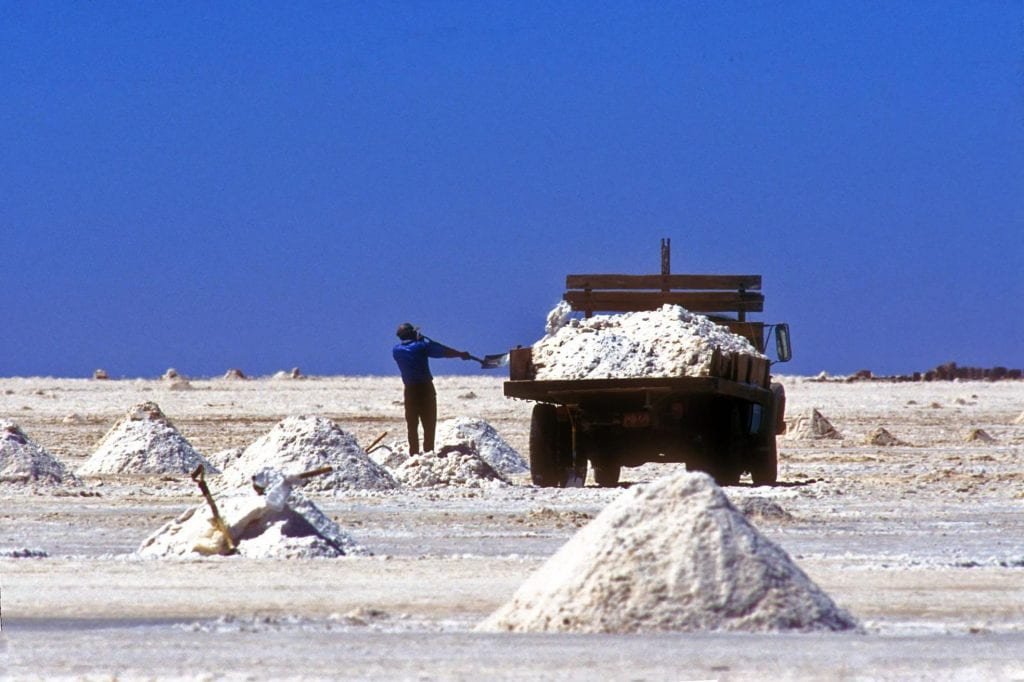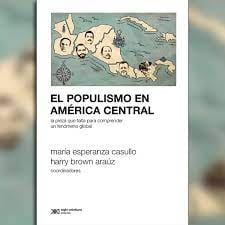Bolivian Women
The Opportunity Deeper Beneath the Surface
The southwest highlands of Bolivia have offered residents one primary livelihood: salt mining. In recent years, however, a lesser known yet highly abundant element there has become the core of national economic, political and even cultural debates: lithium. Bolivia’s leadership is well aware of the growing importance and desirability of this light silver-white metal. It is also aware that estimates have shown Bolivia to hold between 40 and 50 percent of the world’s volume of lithium. Equipped with this information, the Evo Morales government is playing a strong hand at the negotiating table. But the real question is not how much lithium is extractable nor the timeline for extracting and refining it. The real question is “which path will lead to the greatest benefit for Bolivians?”
Whether or not you understand the science behind the uses of lithium, you would probably recognize its application as the main element in the batteries that power your cell phone, GPS, scanner, laptop, iPad, iPod and many other devices. But another expanding application is fueling the growing demand for lithium: electric and hybrid vehicles. From the Toyota Prius to the Ford Fusion to the Chevrolet Volt, the Nissan Leaf and many other present and future models, hybrid and all-electric cars are stirring great interest among major players and consumers alike. China has publicly stated its aim to put one million new hybrid/electric cars on its roads in the next few years. Now picture that each of the lithium supplying countries represents a player at a poker table whose hand is defined by his country’s abundance, viability and quality of lithium reserves. Winning a hand at this table can mean the signing of an exploration contract, the signing of a trade deal or simply the continued business from a consumer country. At this betting table, Bolivia has shown a notably aggressive and confident stance for which there are both clear arguments and counterarguments.
Almost a year ago, the Bolivian government committed $900 million for a state-run lithium industry, according to the Strategic Plan for Lithium Industrialization. Bolivia plans to go it alone in the process, financing the entire chain of production, including a battery plant on Bolivian soil by 2014.
In search of a “strategic partner,” the government has rejected proposals from at least six state and private companies—including those from Japan, South Korea, and France—countries with substantial expertise in lithium battery and electric car technology.
Between 2000 and 2008, worldwide demand for lithium grew at approximately six percent annually. By the end of 2008, Bolivia had been labeled by many as the “Saudi Arabia of lithium.” This hardly earned nickname reinforced an extreme posturing of Bolivian leadership best characterized by demanding non-negotiable terms with majority ownership and guarantees for the bulk of rents from extraction to conversion. Fellow players in the lithium market, more specifically the major consuming nations, called Bolivia’s bluff—walking away from the negotiating table and leaving a significant potential untapped.
In keeping with his mantra of equitable distribution, Morales succeeded in reducing extreme poverty and making improvements in literacy rates during his first term. But many of these achievements were short-term gains from heightening central control and giving handouts to his constituency.
To apply a broader measure of national well-being, it is useful to look at the United Nations Development Programme’s Human Development Index (HDI) from 2010. HDI represents a push for a broader definition of well-being and provides a composite measure of three basic dimensions of human development: health, education and income. Bolivia’s HDI is 0.643, which gives the country a rank of 95 out of 169 countries with comparable data. Between 2005 and 2010, the HDI of the Latin America and Caribbean region increased from 0.683 to 0.706 whereas Bolivia’s HDI increased from 0.631 to 0.643—placing it below the regional average.
An unorthodox leader who once enjoyed unheralded, steady popularity, Morales must recall that his political capital was built on the backing of Bolivians most in need. Now in times of sharp economic difficulty, the potential gains from lithium exploration could offer much needed relief if extraction, refining and distribution processes are managed effectively and in a timely fashion.
Compounding pre-existing challenges, recent and continued revision of global lithium reserve estimates could force Bolivia’s hand at the bargaining table. A study by the James A. Baker III Institute for Public Policy highlights that new estimates for Chile, Argentina, China, Afghanistan and the United States (among other countries) effectively raise global supply figures and diminish Bolivia’s importance in the lithium market, moving its world percentage down to 36%. Add to this discouraging reality that between 2005 and 2008 the United States imported 63% of its lithium from Chile and 35% from Argentina. And beyond the fact that Bolivia’s competitors have already proven their abilities by delivering to big consumer countries is the fact that Bolivia has yet to begin commercial lithium production.
To help you picture what it would take to jumpstart Bolivia’s lithium production and conversion to usable material, imagine a nearly desolate plateau 12,000 feet above sea level near the crest of the Andes in southwest Bolivia serviced only by secondary roads. This is a rough sketch of Salar de Uyuni, the (currently) undisputed single largest deposit of lithium in the world. To make the Uyuni a viable production site, all infrastructure will need to be built from scratch and both technology and skilled labor brought in from outside the area.
With this in mind, let’s look at the financing side of lithium viability in Bolivia. The Bolivian government is already committed to a $1 billion investment plan in hydrocarbons to offset the poor results of its nationalist policies in the natural gas industry. Withdrawal from the Andean Trade Promotion and Drug Eradication Act program in September 2008 (which gives preference of access to the U.S. market) produced a loss of 9,000 jobs through 2009 and has forced a doubling of government subsidies to manufacturing exports (from $8 million to $16 million). Bolivia’s strained financial situation worsened by government decisions to impose price controls has forced the country to approach foreign investors and to test the national aversion to non-national interests.
Exploring lithium and turning the Uyuni into an effective, responsible extraction site brings with it significant, overlapping risks for the tourism industry, as well as the environment and local livelihoods. If the government-built pipelines delivering water to the pilot projects at Uyuni falter, allowing pollution into the groundwater, local farmers will suffer considerably. Turning hefty claims into reality will require an approach based on environmental, technological, infrastructure, cultural and economic analyses and a program built on the capability of firms and individuals with extensive experience and knowledge. To curb environmental risks, Morales may want to more closely involve the Bolivian Environmental Defense League (FOBOMADE) in strengthening assessments and subsequent implementation plans.
In this difficult and yet potentially opportune time, Bolivian leadership could take a historical lesson from China and the Asian tigers to inform its approach to the lithium boon. Foreign firms should be allowed to contribute to the development of a universally agreed upon extraction, conversion and distribution strategy. Agreements must mandate and prioritize the training of locals by foreign firms, ensuring knowledge and skills transfer coupled with minimum reinvestment levels in local industries yet revisiting the current demand of 60% earnings share for the state. Bolivia should learn from the example of China, where spillover effects from foreign firms hiring and training locals have greatly strengthened local and national capacities.
Better yet, take a page from the history of DeBeers and Botswana and specifically how the insightful leadership of Seretse Khama built a mutually beneficial relationship with the commercial giant that would drive national prosperity for generations. Morales should reassess his stance and consider the far-reaching implications of continuing to overplay a weakening hand rather than taking the bold step of overcoming xenophobia with an inclusive, environmentally and economically progressive lithium strategy that could set the stage for a more prosperous, competitive Bolivia.
David Daepp is Associate Portfolio Manager with the United Nations Office for Project Services (UNOPS) where he manages the Latin America & Caribbean portfolio for the Global Environment Facility’s Small Grants Programme. He holds a B.A. in Economics from the College of the Holy Cross and an M.A. in International Development Economics from Fordham University. He has written for ReVista as well as Américas magazine (published by the Organization of American States) and The Long Term View (Massachusetts School of Law at Andover). He can be contacted at ddaepp@gmail.com.
Related Articles
A Review of Alberto Edwards: Profeta de la dictadura en Chile by Rafael Sagredo Baeza
Chile is often cited as a country of strong democratic traditions and institutions. They can be broken, however, as shown by the notorious civil-military dictatorship of Augusto Pinochet (1973-1990). And yet, even a cursory view of the nation’s history shows persistent authoritarian tendencies.
A Review of Born in Blood and Fire
The fourth edition of Born in Blood and Fire is a concise yet comprehensive account of the intriguing history of Latin America and will be followed this year by a fifth edition.
A Review of El populismo en América Latina. La pieza que falta para comprender un fenómeno global
In 1946, during a campaign event in Argentina, then-candidate for president Juan Domingo Perón formulated a slogan, “Braden or Perón,” with which he could effectively discredit his opponents and position himself as a defender of national dignity against a foreign power.





